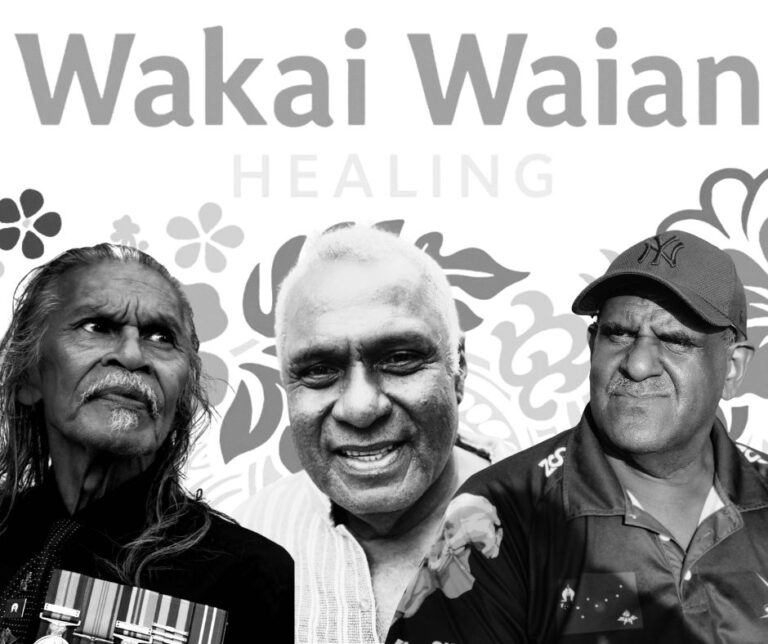In Zenadth Kes, three respected elders guide conversations when someone ends their own life or puts their life at risk. Uncle Marsat Ketchell, Uncle Gabriel Bani, and Uncle Philip Mills make up the Steering Committee for Wakai Waian Healing’s Aftercare consultations across the Torres Strait. Together, they ensure the framing of the conversations shapes the way forward. This is no ordinary yarn.
Uncle Marsat, who has been at the forefront of mental health in the Torres Strait for more than two decades, says suicide and self-harm must be seen as part of a wider picture.
“People die from preventable diseases such as diabetes, heart disease, smoking and alcohol abuse and various other chronic diseases,” he says. “We all die from something, but too many of our deaths are premature and preventable. In our culture we need to speak about harm reduction, not just suicide. Let’s focus on Before Care, not when it is already too late.”
For Uncle Marsat, that means the Aftercare conversation must also include prevention, protection and cultural strength that keep people safe long before crisis.
Uncle Gabriel Bani brings the depth of Buway, the Torres Strait kinship and decision-making system, into this work. “We have the answers in our cultural ways,” he says. “Buway is not just family lines, it is how we govern, how we show respect, how we pass down authority and how we make decisions together. Buway tells us who should speak first, who carries responsibility, and how consent is given. It is through Buway that families and clans know their place, their duty and their strength. That is what keeps people connected and supported when life gets heavy.”
Uncle Philip Mills, the architect of the Torres Model of Care, says the model was built on the foundations of culture and community. “The Torres Model of Care is built on culture and Indigenous governance, community-based health services, a strong local Indigenous workforce, holistic health, integration across services and prevention. These pillars make sure our health system is built for us, by us. Social determinants, Indigenous governance, local staff and community leadership are not optional; they are essential.”
For these leaders, Aftercare is essential, but it cannot stand alone. In Zenadth Kes, harm reduction must be part of the Aftercare conversation. Guided by Buway and the Torres Model of Care, the focus is on prevention, protection, and recovery.
Wakai Waian Healing is walking this path with Elders, families and community leaders. By listening first and strengthening what already exists in culture, aftercare becomes a service and a way of life. This work is being carried out in partnership with key stakeholders, including the Northern Queensland Primary Health Network (NQPHN), Torres and Cape Hospital and Health Service (TCHHS), and Torres Health and community organisations, councils and local leaders and elders from across Zenadth Kes.
Where we’ll be
- Inner Islands: in progress now – October
- Mer (Murray Island) 10–14 November
- Masig (Yorke Island) 17–21 November
- Poruma (Coconut Island) 24 – 28 November
- Badu, Boigu, Dec/Jan dates TBC
To learn more, contact Shanna Mosby from Wakai Waian Healing, the Program Manager and Team Leader for Thursday Island cca@wakai-waian.com.au

